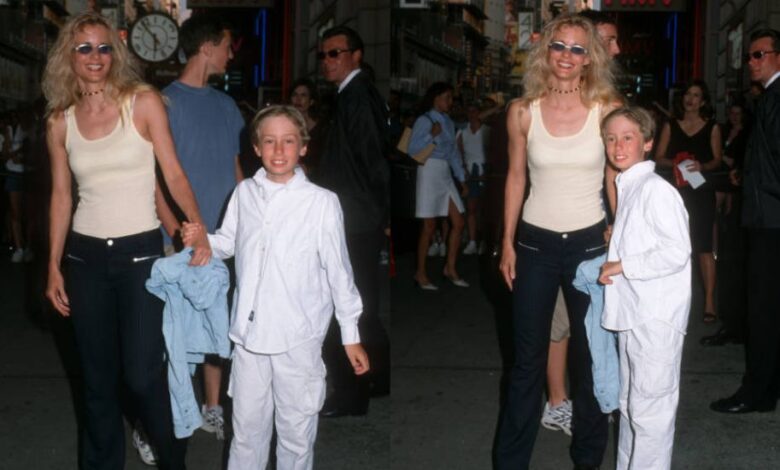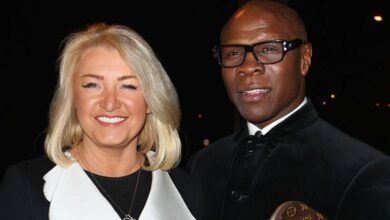Jacques Rio Emery and Richard Emery’s Influence

In the world of celebrity lineages and intellectual dynasties, few names generate as much intrigue as Jacques Rio Emery. Often referenced under slightly different spellings such as Jacques Singer-Emory or Jacques Rio Singer Emery, his identity is intertwined with two very different yet equally distinguished family legacies. On one side, the arts, represented by his mother, actress and cellist Lori Singer, and her broader musical family. On the other side, law and civil rights, represented by his father, the well-known New York attorney Richard Emery.
The fascination around Jacques is heightened by confusion across blogs and news outlets, where speculation about his career and personal life often runs ahead of verifiable fact. To truly understand who Jacques is—and what role his background plays in public interest—it is necessary to unpack the details systematically: his family history, his education, the influence of Richard Emery, and the myth-building that surrounds him online.
Family Background and Early Life
Jacques was born on March 1, 1991, in a family steeped in achievement and visibility. His mother, Lori Singer, is best known for her role in the 1984 classic Footloose and for her accomplished career as a cellist. She came from a household deeply rooted in music—her father, Jacques Singer, was a renowned conductor, and her twin brother, Gregory Singer, a violinist.
His father, Richard David Emery, represents a different but equally commanding presence. A seasoned civil-rights lawyer and founding partner at Emery Celli Brinckerhoff Abady Ward & Maazel LLP (ECBAWM), Richard Emery built a career around constitutional law, voting rights, and government accountability. He also chaired New York City’s Civilian Complaint Review Board, playing a crucial role in shaping public oversight of law enforcement.
The convergence of these two lineages—art and activism—gave Jacques a uniquely multifaceted environment. He inherited exposure to both high culture and high-stakes advocacy, a rare combination that shaped his early development.
Education and Princeton Years
Jacques pursued higher education at Princeton University, one of the most prestigious academic institutions in the United States. While at Princeton, he joined the men’s lightweight rowing team, balancing academics with athletic commitment. Princeton’s record also notes his interest in classical music, specifically the cello—an echo of his mother’s celebrated talent.
Beyond music and sports, Jacques showed strong intellectual inclinations toward international relations, economics, and mathematics. His academic profile highlighted an individual with not only physical discipline but also a rigorous analytical mindset. This combination mirrored the duality of his upbringing: a world shaped by both artistic sensitivity and legal precision.
Richard Emery’s Influence: A Father’s Legacy
Understanding Jacques requires understanding his father. Richard Emery is more than a successful lawyer—he is a figure who made measurable contributions to civil liberties and public accountability.
Born in 1946, Emery earned his B.A. from Brown University in 1967 and a J.D. from Columbia Law School in 1970. He went on to argue cases that shaped civil-rights law in New York and beyond. His work in government reform, election law, and police oversight earned him a reputation as a principled, sometimes controversial, but always passionate advocate.
For Jacques, growing up with such a father meant being constantly exposed to discussions of fairness, justice, and civic duty. While there is little verified public information on whether Jacques pursued a career in law or advocacy, the imprint of Richard Emery’s legacy is unmistakable. Even in online speculation about Jacques, his father’s reputation as a lawyer is always a defining reference point.
The Confusion of Names and Identities
One major reason for the swirl of speculation about Jacques lies in the inconsistent way his name appears online. Some sources refer to him as “Jacques Rio Emery,” others as “Jacques Singer-Emory.” The former seems to dominate on blogs and pop-culture sites, while the latter aligns with Princeton’s official records.
This inconsistency fuels the ambiguity around his public image. To add to the confusion, the name Richard Emery itself is shared by unrelated individuals, including:
-
Richard Darren Emery, a Missouri man convicted in a notorious murder case in 2018.
-
A little-known actor named Richard Emery, whose biographical details are often misattributed to the lawyer.
These overlaps complicate online searches and make it difficult for casual readers to separate fact from fiction. For anyone writing about Jacques, precision is essential: his father is Richard David Emery, the lawyer, not any of the others.
Blogosphere Claims and SEO Myths
Beyond verified university records and family biographies, much of what circulates about Jacques originates from blogs, online magazines, and SEO-driven content farms.
Some examples include:
-
Lifestyle blogs portraying Jacques as a rising star in sustainable innovation, positioning him as a thought leader in technology without clear evidence.
-
Fintech-oriented blogs calling him a “legend” in Asian markets, with little or no corroboration.
-
Art and culture blogs presenting him as a transformative artist, echoing the legacy of his mother but lacking concrete detail.
These claims are usually unsubstantiated and sometimes contradictory. What they do reveal, however, is the strong demand for information about Jacques. Because of his family’s prominence, he has become a subject of digital myth-making, where speculation fills the gaps left by limited verified facts.
The Intersection of Art and Advocacy
Even with limited direct information about Jacques’ adult career, one can draw connections from his background. The twin legacies of art and activism inevitably shape personal identity.
-
From Lori Singer, Jacques inherited exposure to creativity, performance, and the discipline of classical music.
-
From Richard Emery, he inherited awareness of civic duty, accountability, and public service.
Whether or not Jacques chose a high-profile path, this dual inheritance provides context for why blogs are eager to cast him as a change-maker. Even if speculative, the framing of Jacques as a leader in sustainability, fintech, or the arts reflects the public expectation that he embodies some aspect of both parents’ legacies.
Public vs. Private Life
One of the challenges in writing about Jacques is respecting the boundary between public interest and private life. Unlike his mother, who pursued a visible career in Hollywood, Jacques has maintained a relatively low profile. Much of what is verifiable comes from official university records, family biographies, and mentions of his parents.
The temptation of the internet is to inflate limited facts into expansive narratives. As writers, researchers, and readers, it is important to acknowledge these limits while still exploring the broader context of family heritage and influence.
Why Jacques Rio Emery Matters in Search Trends
The reason Jacques’ name continues to trend on blogs and search engines is less about his public accomplishments and more about what he represents. He is the intersection of two compelling stories:
-
The artistic legacy of the Singer family.
-
The civil-rights and reformist impact of Richard Emery.
This combination makes Jacques a figure of enduring curiosity—even if he himself has chosen a quieter path. For SEO and digital publishing, he is a classic example of how family connections generate ongoing content cycles, even in the absence of new public activity.
Conclusion: The Real Story Amid Speculation
In reviewing the available information, one fact is clear: Jacques Rio Emery (Singer-Emory) is more than just a name on blogs. He is the son of two highly accomplished parents—actress Lori Singer and lawyer Richard Emery—and his biography reflects a blend of artistic discipline, intellectual curiosity, and civic awareness.
While many online claims about his professional achievements remain speculative, the verified details about his education at Princeton and his family’s background are substantial enough to paint a meaningful portrait. Going forward, any discussion of Jacques should distinguish between documented fact and blog-driven narrative.
At the end of the day, Jacques’ story reminds us that sometimes, being at the intersection of art and law is enough to make a name resonate across generations.
Blog Note
This article was researched and prepared for readers of Blog Loom, where we explore the intersections of biography, culture, and public legacy.




